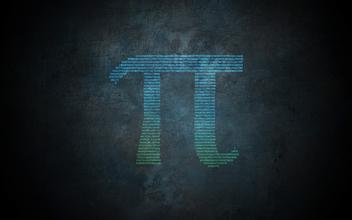(单词翻译:单击)
Language is hard. In fact, it's infinitely harder and more complicated than math. And yet, nearly every small child can learn and master language.
语言真的很难。老实讲,它比数学要复杂得多,也困难得多。不过,几乎所有的小孩子都能够学习并且熟练掌握一门语言。
Why is math so overwhelming for so many students? And how high is the price we pay from having so many math-terrified or even math-illiterate people in our society? Too high, especially as the ability to grasp data and pursue advanced work that involves math is becoming increasingly important for both citizens and job applicants.
那到底为什么数学会让许多学生觉得无所适从呢?而因社会上这些“数学恐惧症患者”,甚至是“数学盲”的存在,我们又得付出多大的代价呢?这代价简直太大了,尤其是在当今社会,获取数据和从事高难度工作越来越成为普通人和求职者的必备能力。
It often starts with the problem of teaching math in the abstract. This misses the remarkable amount of mathematical knowledge that we humans already possess. We know how to solve for unknowns, for example. That's algebra. We also are able to think in terms of three dimensional spaces—that's geometry and trigonometry. So this mathematical language is the analytical expression of the way we already think.
问题一开始出在数学的抽象教学上。这就让我们错过了大量我们本身就具有的数学知识。我们知道如何去解决未知的东西,那么这就是代数。我们也知道用三维空间去思考--这就是几何学和三角学。这门数学语言其实就是我们思维方式的解析式。

But how many of us feel incapable, rather than poorly taught, when we are confronted with the rigors of math? How many children who struggled to grasp math concepts, who lacked the necessary tool kit, were led to feel stupid, even demeaned?
然而碰到数学难题的时候,我们当中有多少人只会觉得是自己无能,而不会归因于教育问题?又有多少孩子绞尽脑汁地去记忆数学概念,却因为缺少必要的学习工具,而觉得自己愚蠢之极,甚至变得妄自菲薄?
Compare it to spoken or written language. When you make a mistake, a teacher corrects the part that is wrong. And then you proceed. With math, if you don't have the correct result, it is typically treated as wrong. And, as mistake after mistake builds up, too many students simply give up: I can't do math.
相比起来书面语或者口语,如果你犯了错误,老师就会对此进行更正,然后你可以再继续。而数学就不一样了,数学是如果你得不到正确答案,老师就会认定你做错了。随着错误不断堆积,很多学生直接放弃了:我就是搞不懂数学。
But math is not about intelligence. It's a language that too many people never learn, often because the education process misses the number of ways that a given person can arrive at a given solution.
不过数学无关智力,而是一种许多人都未曾学习过的语言。很多时候就是因为教育过程不注重因材施教的方法,才会让数学变得那么“难”。
That's not a failure of children to learn. That's a failure of teaching. It's a failure of the school. We should not blame the student. (These are children, after all.)
这不是孩子学习的失败,而是教育的失败,学校的失败。我们不该责怪学生。(毕竟他们只是孩子而已)
Part of the challenge is to identify the gaps in knowledge, to clarify that the challenge is not that a student simply doesn't understand algebra or trigonometry or whatever. There may be a particular basic concept that stands in the way of going forward in math, as well as other fields such as social science or engineering.
我们遇到的挑战一部分是认清知识之间的缺口,以及明白这份挑战不只是因为学生不懂代数或者三角学。有时候我们可能会遇到某一个基本概念,它不止阻碍我们步入数学的大门,也会影响我们通往其他领域的步伐,比如社会科学或者工程学。
Overcoming this block requires moving beyond broad industrialized education and to individualized, personalized learning that allows students to find their own way in. Show me a thousand students and I'll show you a thousand different pathways that they might take to achieve math success.
要克服这一困难,我们就必须得摒弃产业化教育,因材施教,这样有助于学生找到自己的学习方法。给我1000个学生,我就能让你看到拿下数学的1000种不同方法。
With new digital technologies and a massive amount of data collection and analytics, we have the ability to help students identify the essential concepts they don't understand. We have data on all the students that solved a particular math problem and those that failed to solve it. We also have data on the problems they were able to solve prior to that.
有了新的数字科技、大量的数据收集和分析学,我们有能力帮学生记住一些他们原本并不理解的基本概念。我们收集的数据包括:对于某个特定的数学问题,能够解决和不能解决的学生情况,以及在那之前他们能够解决的问题。
So as a student recognizes that they are struggling with, say, negative number concepts, they can go back and master the material—to fill in the gaps that allows them to go forward. And when they hit another tough spot? They can jump to the problems that allow them to master that concept. The hope is that as they progress, their interest and enthusiasm increases.
因此,当学生知道他们正在与,比如说负数概念艰难地做斗争,可以回过头去,掌握一些必须的材料,将知识的缺口填补完整,这样就能继续往前走。那以后又碰到难题该怎么办?他们可以直接去解决一些特定问题,从中快速掌握该概念。我们希望,学生在进步的过程中,自己的兴趣和热情也能一起被提高。
We are pursuing this approach at the university level. We also are seeking to incorporate this approach at the high school, middle school and elementary levels. This will make it possible for a growing number of students to pursue degrees and careers that they never thought.
我们现在正在大学教育中推行这一方法,也力求将其与小学、初中和高中教学结合起来。这样一来,越来越多的学生便有希望获得以前从未想过的学位或者职业。
In the years ahead, that mindset, borne out of the failure of math instruction, should diminish. If we can succeed at breaking down the assumption that there's something wrong with a 3rd grader who cannot learn math—rather than something wrong with the teaching process—then we can look forward to new generations of math-literate citizens. Whatever career they choose, they will be more confident and more capable to understand and contribute to an increasingly complex, data-driven world.
以后的若干年,由于数学教育的失败而生出的自卑心态应该逐渐消失。现在人们的想法是,如果一个三年级的学生学不会数学,那就是他有问题,跟教育过程完全没关系,如果我们能够成功打破人们这种想法,就可以寄希望于新一代的“数学盲”。不管他们选择什么职业,都一定会更加自信,且有更强的能力去理解这个日益复杂,数据驱动的世界,并为之贡献出自己的一份力量。


